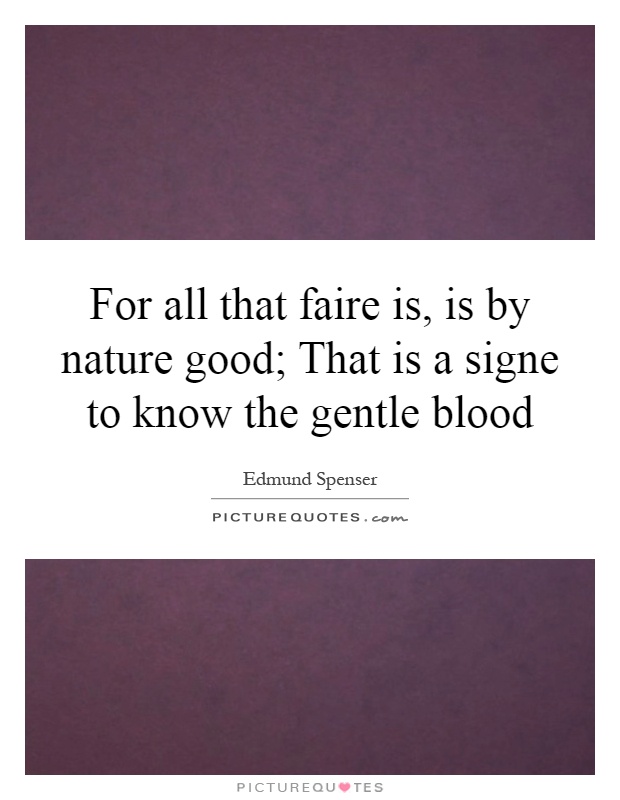For all that faire is, is by nature good; That is a signe to know the gentle blood

For all that faire is, is by nature good; That is a signe to know the gentle blood
Edmund Spenser, a prominent English poet of the Renaissance period, is known for his epic poem "The Faerie Queene." In this work, Spenser explores themes of chivalry, virtue, and the nature of beauty. One of the most famous lines from "The Faerie Queene" is "For all that faire is, is by nature good; That is a signe to know the gentle blood."This line encapsulates Spenser's belief in the inherent goodness of beauty and the connection between outward appearance and inner virtue. In the world of "The Faerie Queene," beauty is not just a superficial quality but a reflection of one's character and lineage. Those who possess true beauty are seen as noble and virtuous, while those who are ugly or deformed are often portrayed as evil or corrupt.
Spenser's use of the word "gentle blood" in this line is significant, as it suggests that beauty is not just a matter of physical appearance but also a reflection of one's lineage and upbringing. In the world of the poem, those who come from noble or virtuous families are more likely to possess true beauty, both inside and out.
Furthermore, Spenser's assertion that "all that faire is, is by nature good" speaks to his belief in the inherent goodness of beauty. In a world filled with darkness and corruption, beauty serves as a beacon of light and hope. It is a sign of purity and goodness in a world that is often filled with deceit and treachery.
Overall, this line from "The Faerie Queene" reflects Spenser's belief in the power of beauty to inspire virtue and goodness in the world. It serves as a reminder that true beauty comes from within and that those who possess it are truly noble and virtuous.












 Friendship Quotes
Friendship Quotes Love Quotes
Love Quotes Life Quotes
Life Quotes Funny Quotes
Funny Quotes Motivational Quotes
Motivational Quotes Inspirational Quotes
Inspirational Quotes